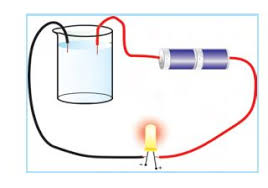
Properties and Electrical Applications of Conductive Bakelite Powder
Bakelite, a type of thermosetting plastic, has long been recognized for its durability and heat resistance. However, by integrating conductive materials into Bakelite, it transforms into a conductive Bakelite powder, which offers unique properties ideal for a wide range of electrical applications. This article will explore the properties of conductive Bakelite powder and its various uses in the electrical industry, highlighting its versatility and benefits.
What is Conductive Bakelite Powder?
Conductive Bakelite powder is produced by adding conductive materials such as carbon, graphite, or metallic fillers to the traditional Bakelite resin. This modification gives the material electrical conductivity, making it suitable for applications that require both the insulating properties of Bakelite and the conductive properties of its additives. The resulting material is a fine powder that can be molded or incorporated into composite materials for various applications.
Properties of Conductive Bakelite Powder
Conductive Bakelite powder combines several unique properties, making it an attractive material for different electrical applications:
- Electrical Conductivity: The addition of conductive fillers significantly enhances the material’s ability to conduct electricity. The level of conductivity can be controlled by varying the amount and type of conductive material used.
- High Heat Resistance: Like traditional Bakelite, conductive Bakelite retains its excellent thermal stability. It can withstand high temperatures without degradation, making it ideal for use in environments with extreme heat.
- Durability and Toughness: Bakelite is known for its high mechanical strength, resilience, and impact resistance, which are retained even in its conductive form. This makes it suitable for demanding industrial environments.
- Electrical Insulation: In areas where partial insulation is required, conductive Bakelite still maintains a level of electrical insulation around its conductive parts, offering versatility in the design of electrical components.
- Chemical Resistance: Conductive Bakelite powder also benefits from the inherent chemical resistance of Bakelite, making it resistant to corrosion and suitable for use in harsh environments.
- Easy Processing: As a powder, conductive Bakelite is easy to handle and can be incorporated into various composite materials or processed into molded shapes and 3D structures for specific applications.
Electrical Applications of Conductive Bakelite Powder
Due to its versatile properties, conductive Bakelite powder finds application in several key electrical industries:
1. Electrical Switches and Connectors
Conductive Bakelite powder is commonly used in the manufacturing of electrical switches, connectors, and other components where controlled conductivity is necessary. The material’s insulating properties around the conductive fillers make it suitable for applications requiring partial conductivity and electrical isolation. Its ability to withstand high temperatures and mechanical stress ensures reliability in electrical systems, particularly in high-voltage and high-current applications.
2. Conductive Coatings
Conductive Bakelite powder can be used in the formulation of coatings for electrical devices that require shielding or dissipation of electrostatic charges. For example, electromagnetic interference (EMI) shielding coatings made from conductive Bakelite powder are used in electronics and communication equipment to prevent signal distortion or to protect sensitive components.
3. Electrical Insulating Parts in Electronics
In electronic devices, conductive Bakelite powder is used to create insulating materials for components such as capacitors or resistors. These components require precise control of electrical conductivity to function effectively, and conductive Bakelite provides the required balance between conductivity and insulation.
4. Printed Circuit Boards (PCBs)
The use of conductive Bakelite powder in the production of printed circuit boards (PCBs) has become increasingly important. It offers an excellent base for insulating layers and can provide controlled conductivity for specific pathways on the PCB. This ensures that electrical signals are transmitted effectively while also reducing the risk of unwanted short circuits.
5. Antistatic and ESD Protection
The controlled electrical conductivity of Bakelite powder can be used in the design of antistatic materials and electrostatic discharge (ESD) protection components. These materials help prevent static buildup, which can damage sensitive electronic components and create safety hazards. The conductive Bakelite provides a safe way to discharge static energy, especially in the manufacture of electronics packaging.
6. Automotive Electrical Components
In the automotive industry, conductive Bakelite powder is used for creating electrical components such as battery connectors, ignition parts, and sensor housings. The material’s high temperature resistance and electrical conductivity make it ideal for use in automobile electronics, which are often exposed to harsh conditions.
7. Electrical Wiring Insulation
Conductive Bakelite powder can be utilized in wiring insulation applications. By providing a material that is both conductive and resistant to high heat, it can be used in wires and cables that operate in high-voltage environments.
Advantages of Conductive Bakelite Powder
- Cost-effective: Conductive Bakelite powder offers a more affordable alternative to metals and other conductive materials while still providing the necessary properties for various applications.
- Customizable Properties: By altering the types and amounts of conductive fillers, manufacturers can fine-tune the material’s electrical and mechanical properties to suit specific needs.
- Sustainability: Bakelite is a phenolic resin made from natural raw materials, making it a more sustainable option compared to purely synthetic conductive materials.
- Lightweight: Conductive Bakelite powder is a lightweight material, making it ideal for applications where weight reduction is important, such as in the automotive and electronics industries.
- Long-lasting: Thanks to its high durability, thermal stability, and resistance to environmental stress, conductive Bakelite powder components can last for extended periods, reducing the need for frequent replacements.
Conclusion
Conductive Bakelite powder is a highly versatile material with unique properties that make it suitable for a wide array of electrical applications. Its ability to combine electrical conductivity with thermal resistance, mechanical strength, and chemical stability makes it invaluable in the design of electrical connectors, coatings, PCB components, and antistatic products. As industries continue to seek cost-effective, sustainable, and high-performance materials for electrical systems, the role of conductive Bakelite powder will likely continue to grow, offering innovative solutions to complex challenges in electrical engineering and manufacturing.
